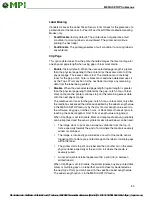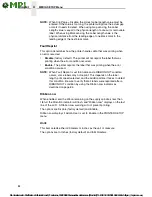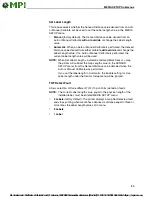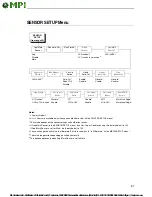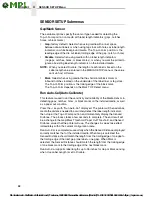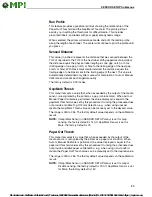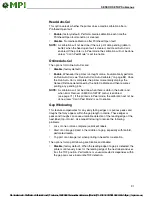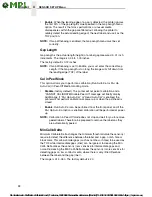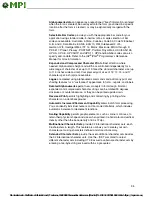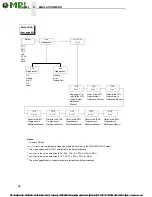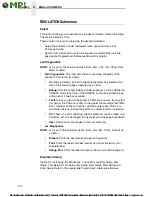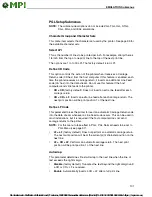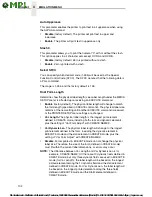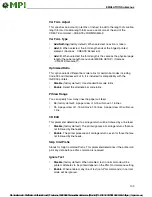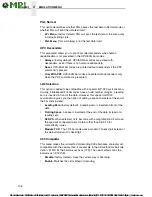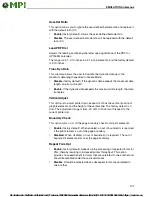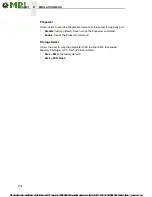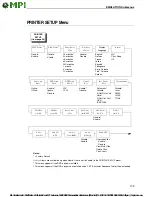
95
Alphanumeric data
can appear as prepositioned “fixed” information (entered
when the form is created), be overlayed onto the form (positioned in a specific
location after the form is created), or may be dynamically merged with the
form.
Selectable Bar Codes
provide you with the appropriate bar code for your
application using standard wide-to-narrow ratios. A wide selection of bar
codes are available: Australian 4-State, Codabar, Code 39, Code 128 Subset
A, B, and C, Data Matrix, EAN 8, EAN 13, FIM, Interleaved 2 of 5,
German I 2/5, Intelligent Mail, ITF 14, Matrix, Maxicode, MSI A through D,
PDF-417, Planet, Plessey, POSTNET, PostBar, Royal Mail, UCC/EAN-128,
UPC-A, UPC-E, UPCSHIP, and UPS 11. UPC and EAN bar codes can also
specify add-on data. Refer to the IGP
®
/PGL
®
Programmer’s Reference
Manual for more information.
Expanded and Compressed Character Print
attract attention where
needed. Alphanumeric height and width are controlled independently for a
wide range of character sizes up to 113 times the standard character size (up
to 11.3 inches wide and tall). Compressed print sizes of 12, 13, 15, and 17
characters per inch (cpi) are available.
Logos
are created using alphanumeric commands and add many print and
shading features for a “customized” appearance to forms, reports, and labels.
Rotated Alphanumerics
permit new concepts in form design. Normal,
expanded, and compressed character strings can be rotated 90 degrees
clockwise or counterclockwise, or they can be printed upside down.
Reversed Print
permits highlighting and contrasting by printing white
characters on a dark background.
Automatic Increment/Decrement Capability
allows batch form processing.
You can identify individual numeric and bar code data fields, which includes
automatic increment or decrement functions.
Scaling Capability
permits graphic elements, such as corners or boxes, to
retain their physical shapes and sizes when printed in a horizontal and vertical
density other than the base density of 60 x 72 dpi.
Multinational Character Sets
provide 32 international character sets, each
96 characters in length. This feature also allows you to create your own
character sets using characters defined and stored in memory.
Extended Character Sets
provide the user additional character sets besides
the 32 international character sets. Use the ~ISET command to select
different character sets including UTF-8 as well as alternate character sets by
entering a two-byte string enclosed within single quotes.



